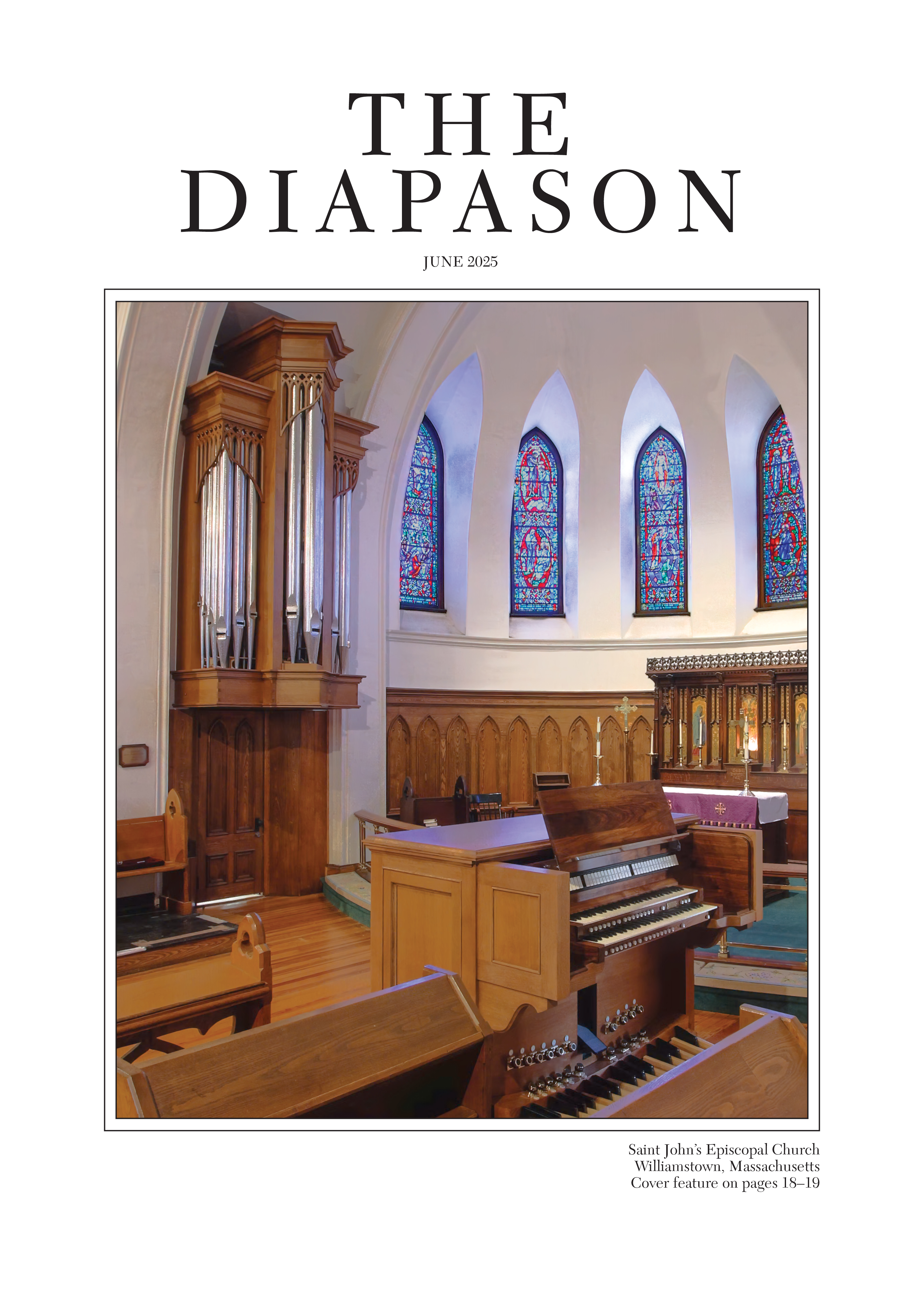J. Bunker Clark, 72 years old (b. 19 October 1931, Detroit; d. 26 December 2003, Lawrence, KS); of melanoma. Dr. Clark earned a BM and MM in music theory, and a Ph.D. in musicology from the University of Michigan, Ann Arbor. Further study as a Fulbright Scholar took him to Jesus College, Cambridge University, in England.
Bunker Clark's teaching career began in 1957-59 as Instructor of Theory and Organ at Stephens College, Columbia, Missouri. From 1959-61, he served as Organist-Choirmaster, Christ Church Cranbrook, Bloomfield Hills, Michigan. Following a 1964-65 position as Lecturer in Music (music history, harpsichord, piano) at the University of California, Santa Barbara, Dr. Clark began his long tenure in Lawrence, Kansas, at the University of Kansas in 1965 as Assistant Professor of Music History; in 1969 he was promoted to Associate Professor of Music History, and in 1975 he became Professor of Music History. He retired in 1993 as Professor Emeritus of Music History. At the University of Kansas, Dr. Clark taught a broad variety of history courses which included Introduction to Music, Introduction to Contemporary Music, History of Music, Collegium Musicum (vocal and instrumental sections), Harpsichord, Music of the Baroque Era, Music of the 20th Century, History of Musical Instruments, Music in America, History of Keyboard Music, History of Solo Vocal Music, and History of Music Theory. For graduate students, he led numerous Seminars in Performance Practice, Keyboard and Instrumental Music of J. S. Bach, Vocal and Choral Works of J. S. Bach, Music of the U.S. before the Civil War, Bach, Elizabethan-Jacobean Music, Handel, Musicology, 19th-Century Musical Nationalism, and Keyboard Music, 1750-1825. He also directed over 25 master's theses and doctoral dissertations.
An inveterate author and editor, Bunker Clark wrote on numerous topics and served as editor for Harmonie Park Press in the Detroit Studies in Music Bibliography, Detroit Monographs in Musicology/Studies in Music, and Bibliographies in American Music. In addition, he worked as general editor for Information Coordinators, which later became Harmonie Park Press.
Although Dr. Clark's specialty was American church music of the English Baroque, as borne out in his 1964 dissertation entitled "Organ Accompaniments to Seventeenth-Century Anglican Church Music: With Emphasis on the Adrian Batten Organ Book," he wrote extensively on early American keyboard music, which includes these books and articles, among others: "The Renaissance of Early American Keyboard Music: A Bibliographic Review"; Anthology of Early American Keyboard Music, 1787-1830, Recent Researches in American Music, vols. 1-2; "American Organ Music before 1830: A Critical and Descriptive Survey"; "The Piano Sonata in Early America: Hewitt to Heinrich"; The Dawning of American Keyboard Music; American Keyboard Music through 1865; "18th-Early 20th-Century American Piano and Harpsichord Music in Anthologies, Reprints, and Recordings"; Charles Zeuner (1795-1857): Fantasias and Fugues for Organ and Piano; and The New Grove Dictionary of American Music (1986) articles: Battle Music, James Bremner, William Brown, Arthur Clifton, William R. Coppock, Pierre Landrin Duport, James F. Hance, James Hemmenway (with Arthur LaBrew), Christopher Meineke, Julius Metz, Peter K. Moran (with Eve R. Meyer), Philip Phile, Charles Taws, Joseph C. Taws, Charles Thibault, Peter Weldon, Charles Zeuner.
In addition to his writing and teaching, Bunker Clark presented his specialty to the people in a series of radio broadcasts entitled Early American Keyboard Music. This series of 13 half-hour programs, funded by a research grant from the University of Kansas--with material gathered in 1972-73 on a National Endowment for the Humanities grant, ran in 1975 on the University of Kansas radio station KANU, and was purchased by other libraries or radio stations across the country.
Bunker Clark was a founding member of the Sonneck Society, now known as the Society for American Music, and he was awarded with the Citation for Distinguished Service, at its meeting in Kansas City, February 1998. He was active in the American Musicological Society, Music Library Association, College Music Society (life member), American Musical Instrument Society, Midwestern Historical Keyboard Society, and other music organizations. Additionally he served on the board of Lawrence Chamber Orchestra.
Bibliographical entries include International Who’s Who in Music and Musicians’ Directory, Dictionary of International Biography, Who’s Who in American Music, Directory of American Scholars, Who’s Who in the Humanities, Who’s Who in American Education, and Who’s Who in Entertainment.
Bunker Clark's love of learning, research, and the Chicago Manual of Style sparked in his students and colleagues that very legacy: the same desire to continue learning, and to write properly.
Survivors include his wife, Marilyn, of their home; and a brother, Thomas D. Clark, Kerrville, Texas; and his kitty, Kocenka.
Memorial services for J. Bunker Clark were held on Friday, 2 January 2004, at Trinity Lutheran Church, in Lawrence, KS. A Michigan memorial service will be held at the Episcopal Church of the Transfiguration on 8 August 2004, at Bois Blanc Island.
The family suggest memorials to Trinity Lutheran Church music fund, 1245 New Hampshire, Lawrence, KS 66044; Lawrence Chamber Orchestra, c/o Lawrence Arts Center, 940 New Hampshire St., Lawrence, KS 66044; or Hospice Care in Douglas County, sent in care ofWarren-McElwain Mortuary, 120 W. 13th St., Lawrence, KS 66044-3402.


